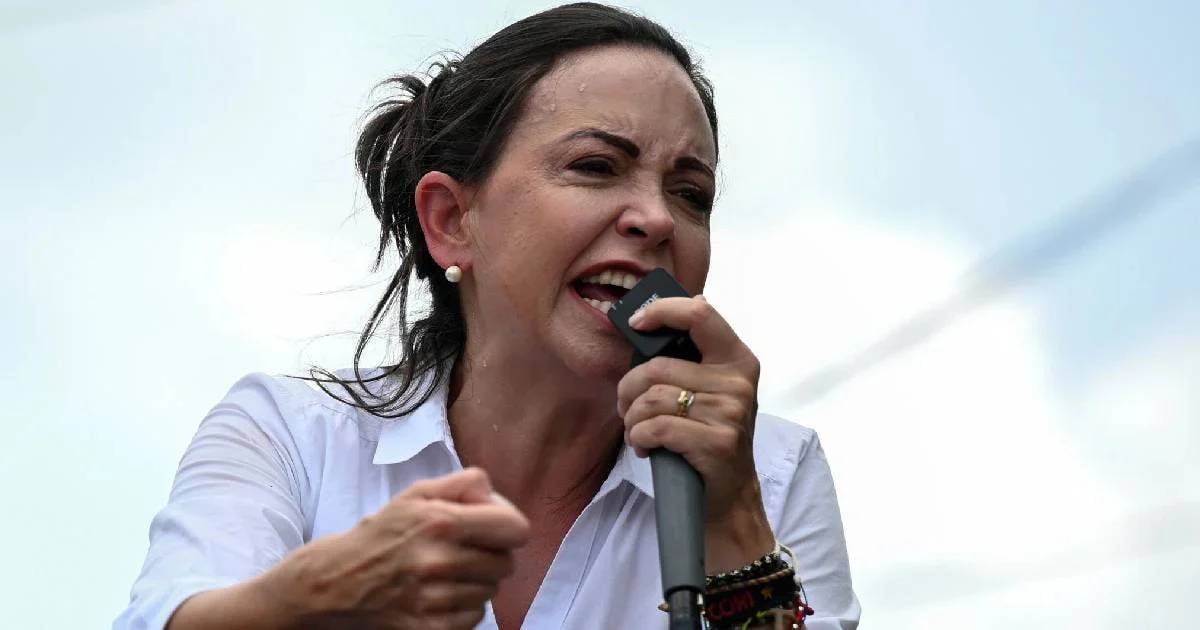
Related videos:
Venezuelan opposition leader María Corina Machado confirmed her attendance at the large demonstration scheduled for January 9, marking her first public appearance after operating in secrecy.
The mobilization coincides with the eve of the presidential inauguration, a date on which both the ruling Nicolás Maduro and the opposition Edmundo González Urrutia have promised to assume office.
In an interview with journalist César Miguel Rondón, Machado expressed her commitment to stand with Venezuelans during this historic moment: "I will be there, with every Venezuelan. It has been the people who have taken care of and protected me all these years," declared the leader, whose call has generated expectations both inside and outside of Venezuela.
That same idea was communicated through his social media: “The time for decision has come. The litmus test for Maduro, for the few supporters he has left, and for the democratic governments of the world. They must decide which side they are on, the side of tyranny and violence, or the side of democracy, the Constitution, and the people of Venezuela,” he wrote.
January 9 represents a decisive test for Maduro's regime, whose international support has significantly diminished, and for the democratic governments of the world, which will have to choose between backing the continuity of chavismo or advocating for a democratic transition.
Machado, regarded as one of the strongest voices against the establishment, reiterated that this mobilization will be a call for respect for the Constitution and democracy. "We will see each other this Thursday, the 9th, in the streets across the country and the world," she emphasized, highlighting the importance of unity in this struggle.
With a tense political landscape and a country in uncertainty, Machado's participation could be a turning point for the future of Venezuela.
On his part, opposition leader and self-proclaimed elected president of Venezuela, Edmundo González, is on a tour to solidify support in the region ahead of his anticipated inauguration ceremony scheduled for January 10, where he will confront the current president, Maduro. His journey took him to the United States, where President Joe Biden received him this Monday at the White House.
González, 75 years old, fled to Spain in September after being threatened with arrest by the Chavista government, but has expressed his intention to return to Venezuela to assume the presidency.
The Venezuelan regime, for its part, has offered a reward of $100,000 for information leading to his capture.
Frequently Asked Questions about the Political Situation in Venezuela and María Corina Machado
Why has María Corina Machado called for a demonstration on January 9th?
María Corina Machado has called for a demonstration on January 9 to mobilize Venezuelans in defense of democracy and freedom, ahead of the presidential inauguration. Machado aims for both Nicolás Maduro's regime and the international community to take a stand in favor of a democratic transition in Venezuela.
What is the current situation of Edmundo González Urrutia in the Venezuelan political context?
Edmundo González Urrutia is regarded as the elected president by the Venezuelan opposition following disputed elections. He is currently abroad, undertaking a tour to garner international support ahead of his planned return to Venezuela on January 10, where he aims to assume the presidency amid a tense political climate.
What role does the international community play in the political crisis in Venezuela?
The international community plays a crucial role in the political crisis in Venezuela, as several countries and organizations have recognized Edmundo González Urrutia as the legitimate president. However, the support for Nicolás Maduro from other countries creates an environment of pressure and expectation regarding a possible peaceful transition.
What is María Corina Machado's position on Nicolás Maduro's regime?
María Corina Machado maintains a critical and firm stance against Nicolás Maduro's regime, which she describes as tyrannical and repressive. She has urged the international community to reject the regime and supports a democratic transition through mobilizations and both internal and international pressure.
Archived in: